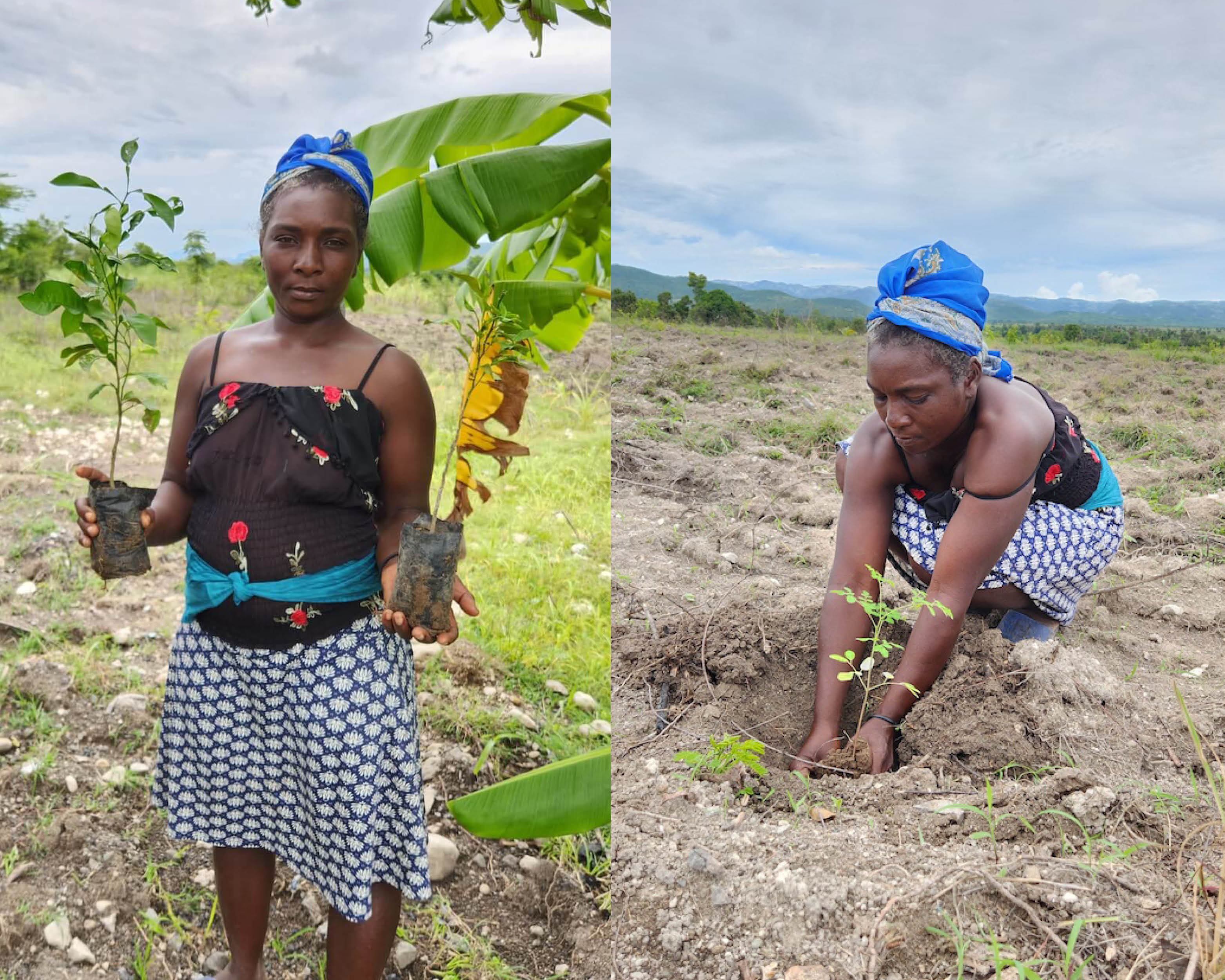Haiti is one of the most deforested countries in the world. The massive loss of forest cover is mainly due to charcoal production, which is the population's primary source of energy. Since 2019, Reforest'Action has partnered with Agrinotech to run an agroforestry project that is both socially meaningful and impact-generating. In nine sections of the Saint-Michel de l'Attalaye region, our partner is dedicated to raise awareness among local populations and to provide training in sustainable agriculture, the only viable means of subsistence in the face of climate change. After three years of action, the project is bearing fruit in the field.
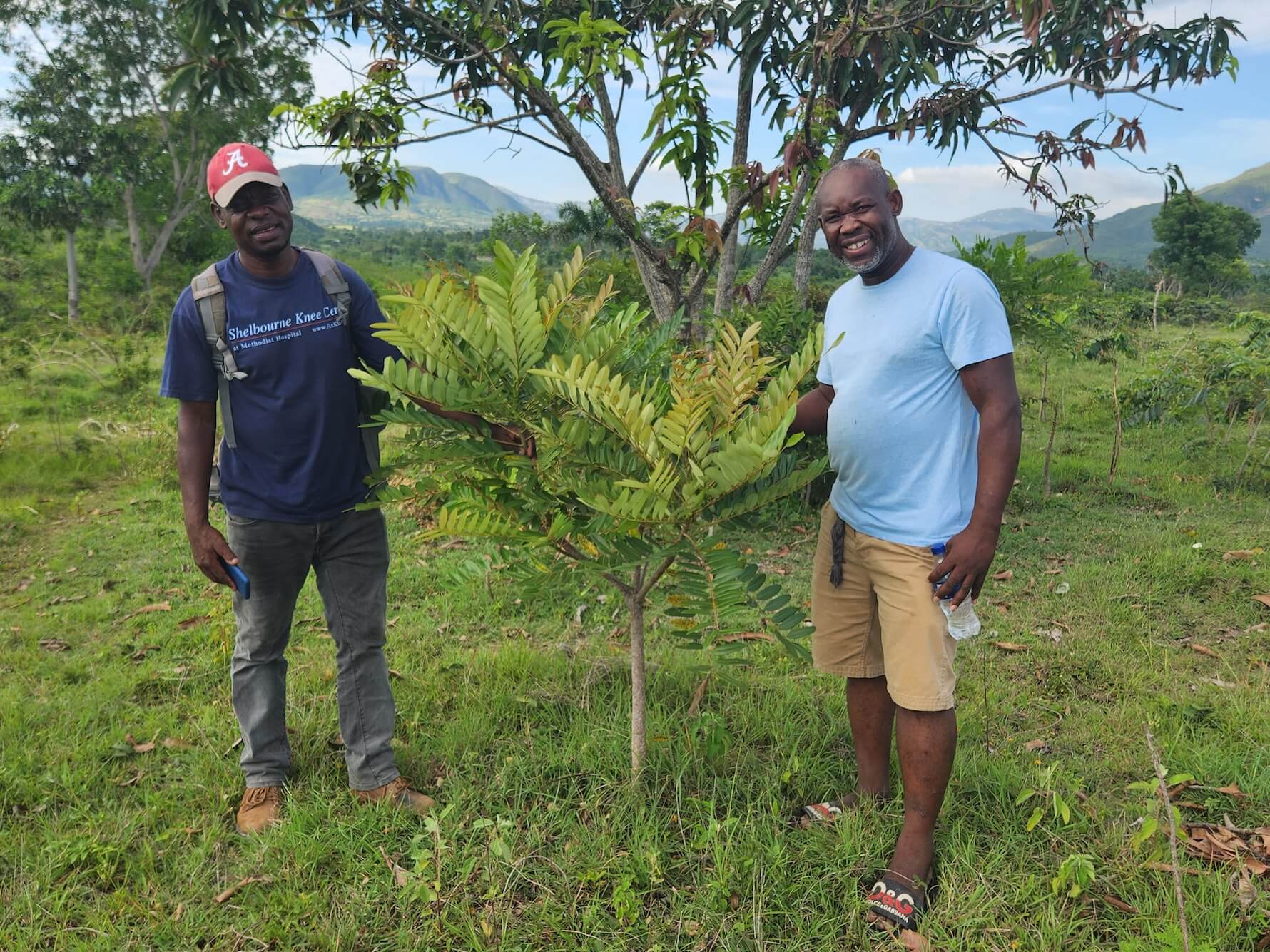
Agroforestry as a response to huge challenges
Discovered in the 15th century by Christopher Columbus, the island of Hispaniola, comprising Haiti to the west and the Dominican Republic to the east, was originally 80% covered by a wide variety of trees. Today, Haiti is one of the most deforested countries in the world, with only 2% of the country's total surface area covered by woodland.
Deforestation in Haiti first started in 1730, during the colonial period, with coffee cultivation occupying a quarter of the territory. It intensified significantly over the 20th century in response to the massive and uncontrollable development of the timber industry. Between 2002 and 2022, the total area of primary rainforest in Haiti fell by 35%, meaning that over 3,000 hectares of carbon and biodiversity sinks were lost. In 2022 alone, deforestation in the country emitted 894,000 tons of CO2 equivalent*. Today, facing extreme poverty, the rural population is forced to chop down trees to produce charcoal, the only fuel available in the absence of any national energy policy. Farming families are bearing the brunt of negative impacts resulting from forest ecosystem destruction: soil degradation and lower crop productivity, prolonged drought, water pollution and more.
*Source: Global Forest Watch, 2022.
2022-2023 season activities
Reforest'Action has been funding an agricultural ecosystem regeneration project in Haiti since 2019, carried out in the field by Agrinotech, an association of motivated agronomists whose ambition is to support and improve the Haitian agricultural sector. Over three planting seasons, the project has enabled the establishment of sustainable agroforestry systems. Forest, fruit, and medicinal species have been integrated into the crops of farmers from the municipality of Saint-Michel-de-l'Attalaye. The primary goals of this program are to regenerate the area's vegetation cover and to ensure the food and economic security of local communities. However, long-term objectives include preserving water sources and groundwater, which are already under threat, and increasing stream flows in the Saint-Michel area, while and providing people with sustainably sourced timber in order to reduce pressure on surrounding forests.
Launched in May 2022, the project's final season ended in August 2023. The planting of a dozen different species, including tree species such as lemon and bitter orange, and native species including corossol, rabbi and mahogany, helped enrich the vegetable and cereal crops of volunteer farmers.
Successes and challenges
At the end of the season, thanks to the mobilization of our project implementer and the active participation of local farmers, more than 535,000 seedlings were produced in the nursery and distributed to the beneficiaries, against an initial target of 515,000 seedlings. In addition, the species selection contained more native trees than in previous seasons.
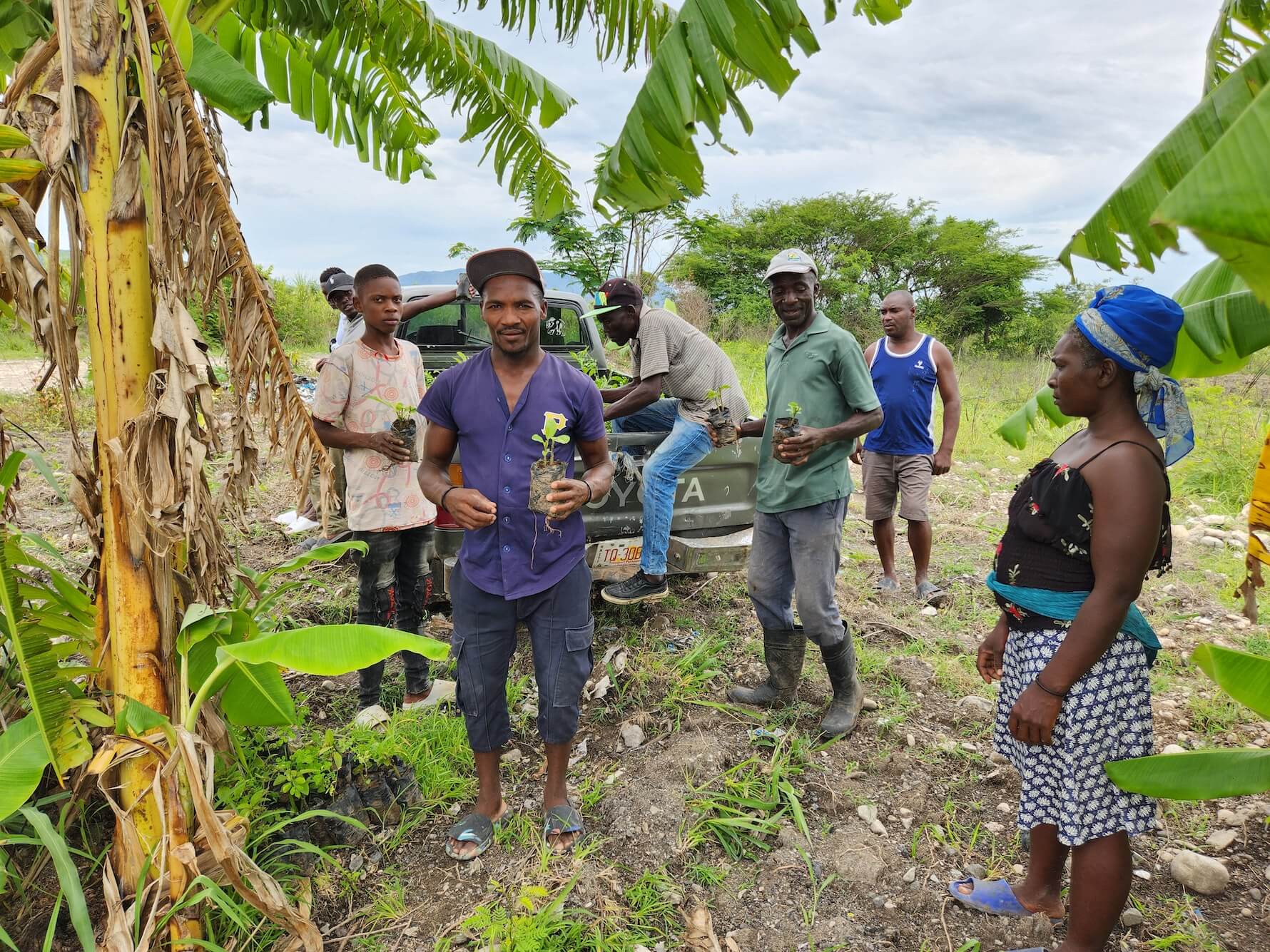
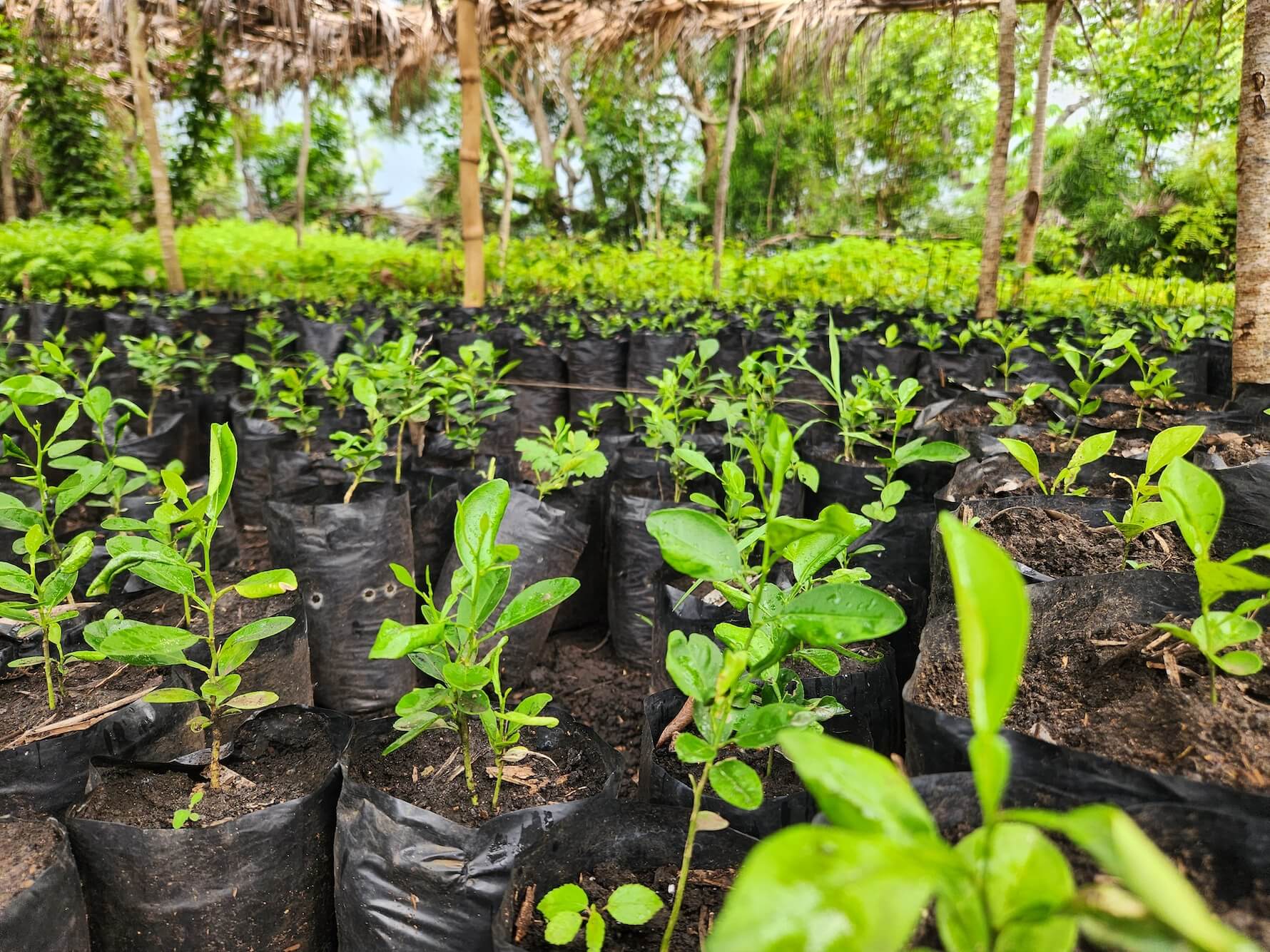
Our partner Agrinotech, keen to continuously improve their practices, took advantage of this season to develop the project team's skills. Selected employees received training from the "Haiti Outreach" organization, which specializes in drinking water supply systems. Combating the drying-up of water resources is a major focus of the project financed by Reforest'Action, and the benefits of tree planting on the quality and quantity of water available will be monitored over time.
The 2022-2023 season was also marked by challenges related to the geopolitical situation in Haiti. The fuel shortage, caused by the gang war that has been raging in the capital since 2021, had major consequences on project activities. Fuel is needed to water seedlings in nurseries as well as to transport them to the farms where they will be planted. Significant adaptation measures have been taken to alleviate these difficulties. More staff were mobilized in the nursery to water the seedlings by hand, while fuel was purchased at high cost to deliver the trees on time. In addition, the main nursery was divided and relocated to three strategic sites so that trees could be more easily distributed to local farmers.
Follow-up and monitoring visits
Prior to the new planting period, the Agrinotech team visited the previous beneficiaries' plots to assess the condition of the trees already planted. This monitoring work made it possible to replace all the trees that had not survived, and thus to measure the effectiveness of tree redistribution and transplanting. A check was also carried out on the plots of each new participant, with the aim of both analyzing the need for soil preparation before planting and recording the new beneficiaries on the project map. Our partner makes every effort to accurately trace the seedlings distributed, in order to guarantee optimal follow-up and monitoring of the project in the years to come.
Recognition of positive impacts
The beneficiaries of the project, which began in 2019, have expressed their enthusiasm for the results achieved. Several of them shared with Agrinotech their observations of the first positive impacts on their land. Some growers said they had succeeded in creating a micro-climate around their plots thanks to the trees planted. Others have noted an improvement in the quality of arable soils, and several are delighted with the added value of forest products (fruit, medicines, etc.). Last but not least, a few say that the nearest water source is no longer dry, whereas it was before the project began. Many farmers therefore express their desire to continue and expand the project over the coming years.
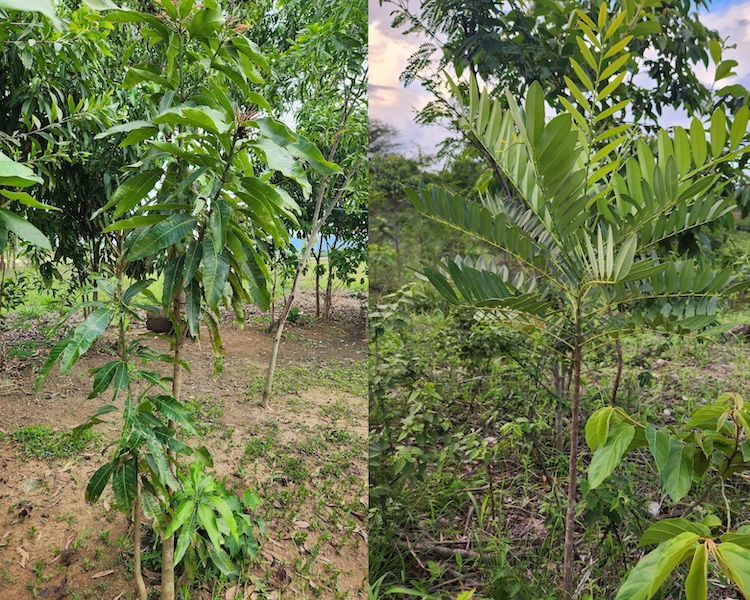
The emphasis on awareness-raising and training
Our partner's strength lies in the tight bond it maintains with the inhabitants of the Saint-Michel-de-l'Attalaye region. Since wood logging by the population is one of the main drivers of deforestation in Haiti, the social dimension of the project is at the heart of Agrinotech's activities. There is an urgent need to raise public awareness on climate change and on the devastating effects of forest cover loss.
In concrete terms, several workshops were held to involve the general public in the project: local producers, religious associations, women's groups, schoolchildren, and local authorities were all invited. These sessions covered a wide range of topics, from the impact of deforestation and the benefits of agroforestry to more technical issues such as how to set up a tree nursery. In addition to empowering Haitian farmers by introducing them to new agricultural practices, Agrinotech aims to inspire and support all stakeholders in understanding environmental issues and applying concrete solutions. A total of 24 training courses were given during the 2022-2023 season, and some 10,600 people benefited from the project.
On Labor and Agriculture Day, held every first of May in Haiti, the special "Plant Trees Save Lives" workshop lasted three days. Over 250 people from planters' groups and women's associations took part in the different sessions.
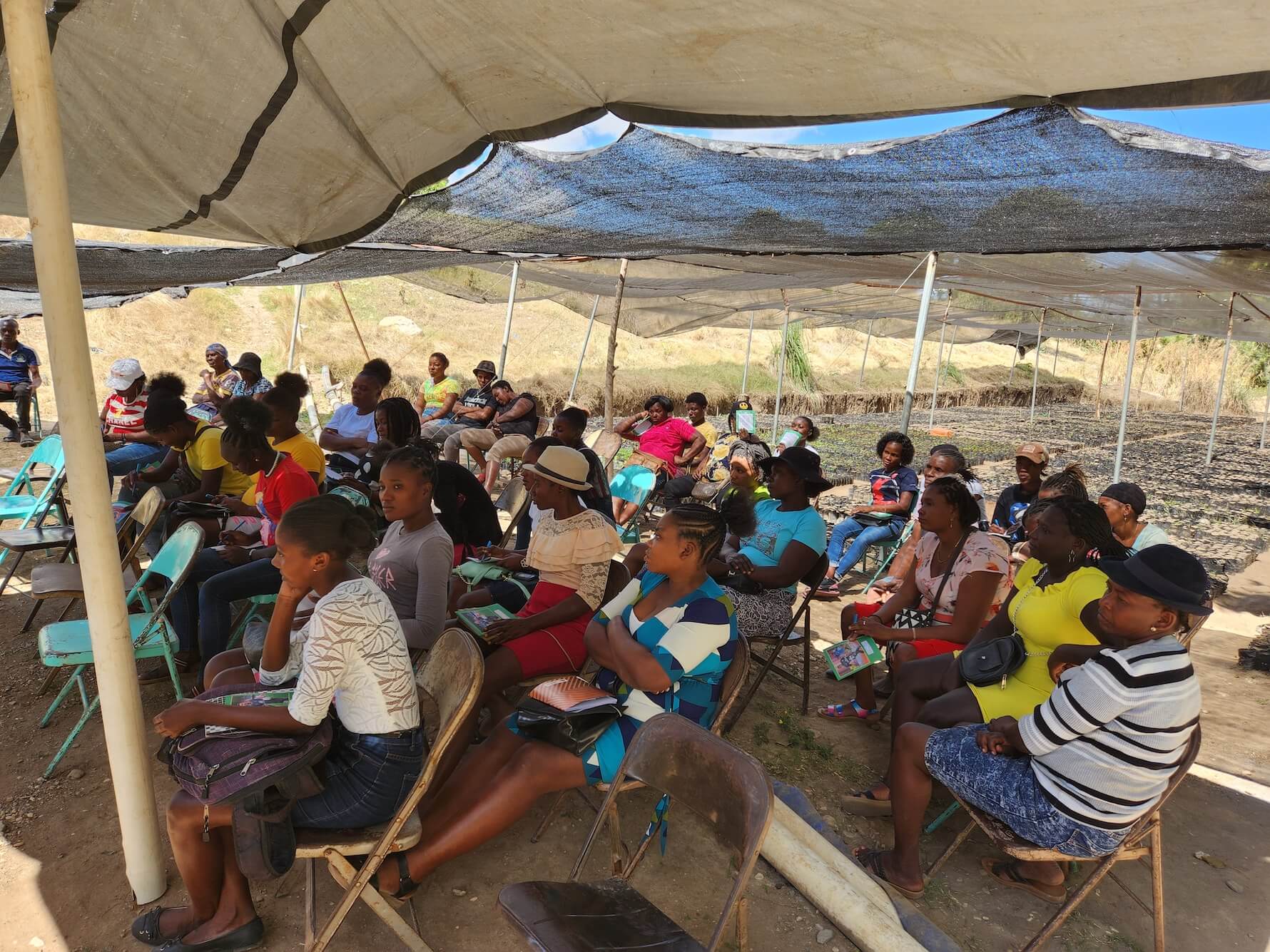
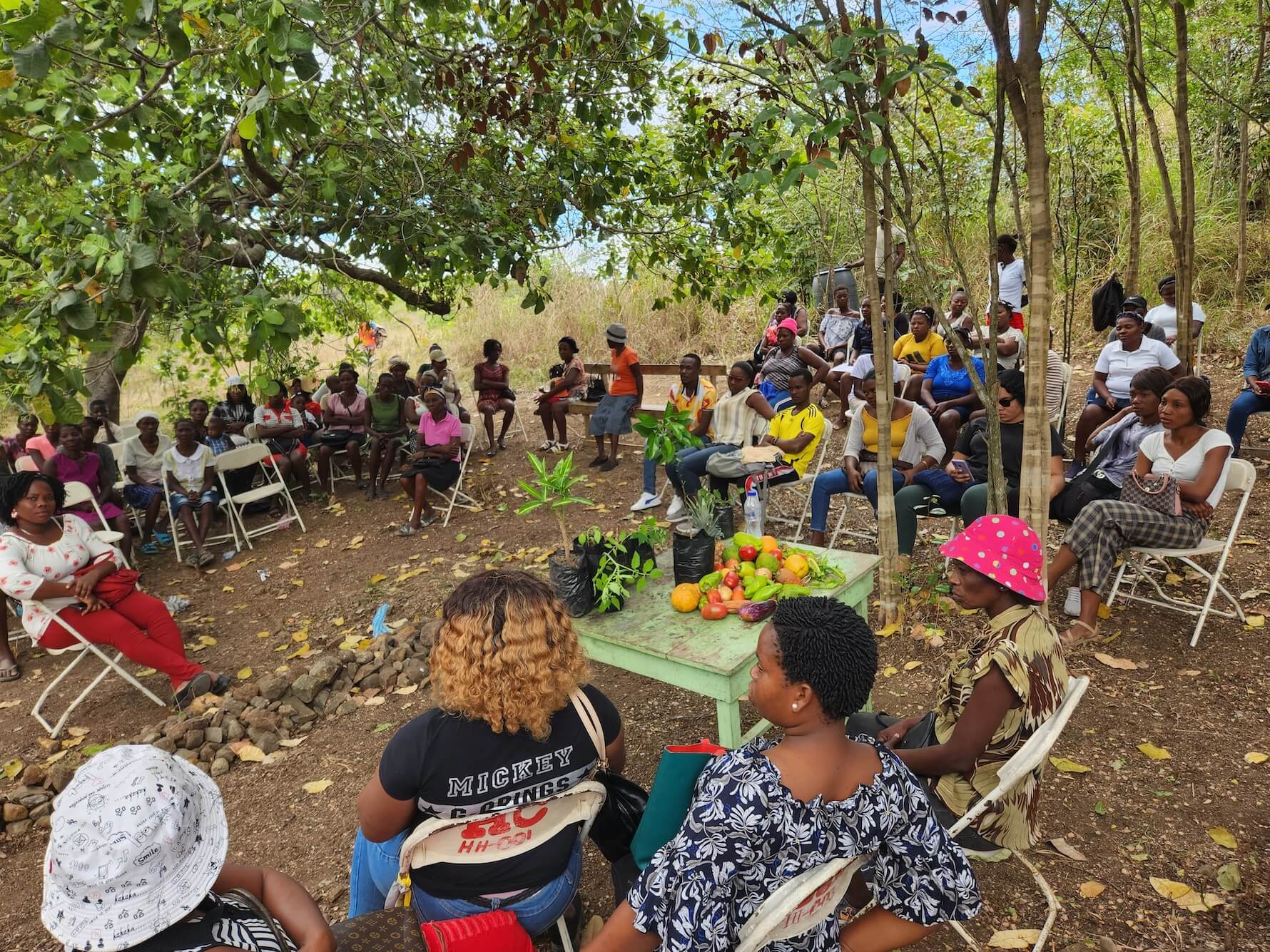
"School gardens" as a training reference
Eighteen "model plots" were set up during this season. Considered as brainstorming and experimental workshops, these "school gardens" contain samples of endangered native plants and species capable of regenerating in the short term to meet the need for wood energy. Nearly 60 training courses have been carried out on these reference plots, attended by over 350 volunteers, with the aim of helping them to plant seedlings on their agricultural plots according to the recommendations of professional agronomists.
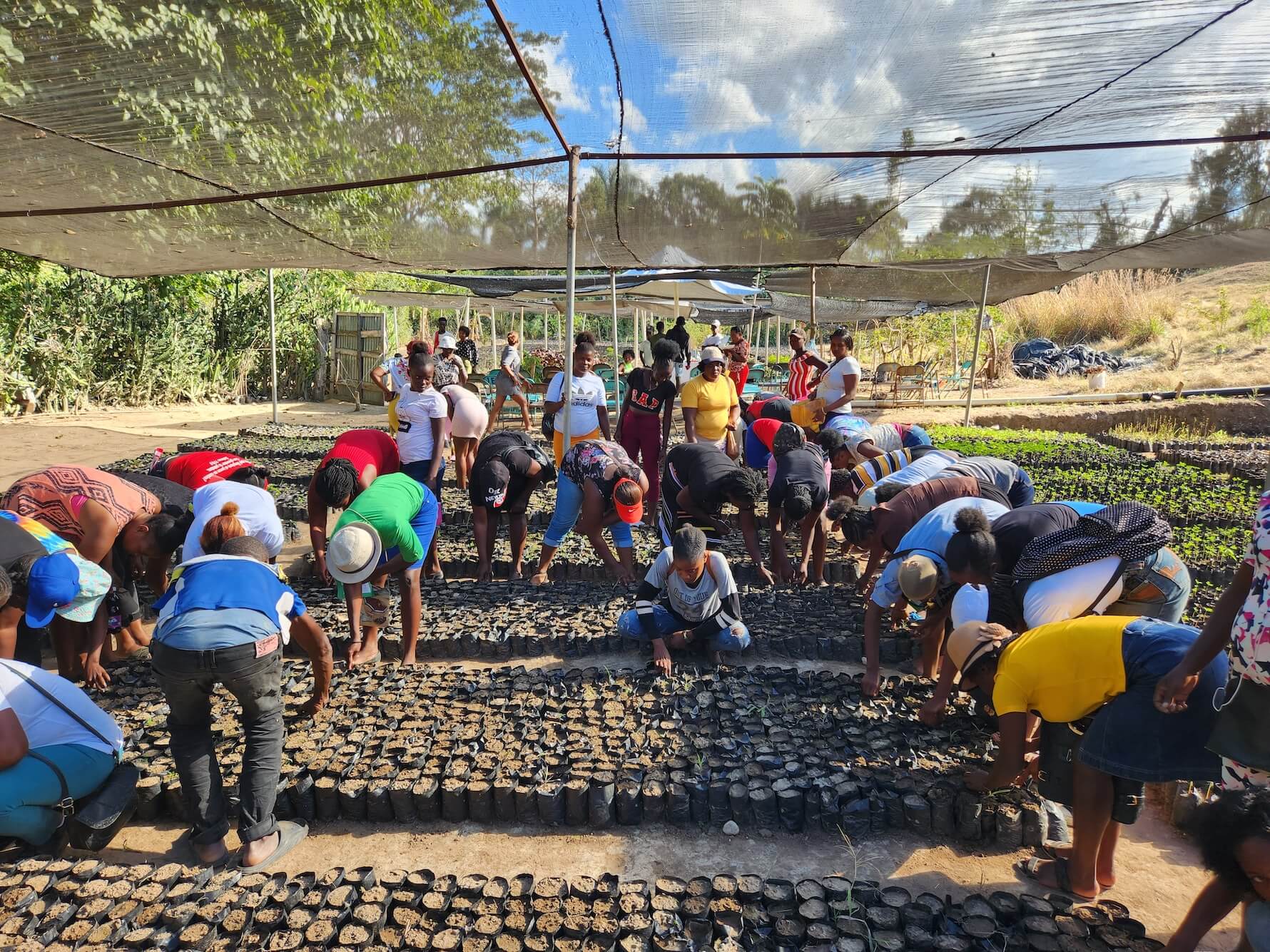
Measures to promote the inclusion of women
At the heart of Agrinotech's social commitment is the inclusion of women. Women have been involved in the project through various mechanisms, most notably as part of the nursery team that operated from December 2022 to February 2023. Nurturing and maintaining a nursery is labor-intensive: purchasing and collecting seeds, mixing the substrate (compost, sand, and dirt), reseeding, transplanting seedlings for delivery, and so on. These activities have been carried out by a team of over 60 local farmers, 70% of whom were women, promoting their integration into the agricultural sector.
In February 2023, several training sessions exclusively dedicated to women brought together around 100 participants for a workshop addressing the topics of agriculture and environmental protection. As an incentive and reward for taking part in the awareness-raising activities, each participant was given 25 citrus seedlings (orange and/or lemon trees) to plant on her own land.
